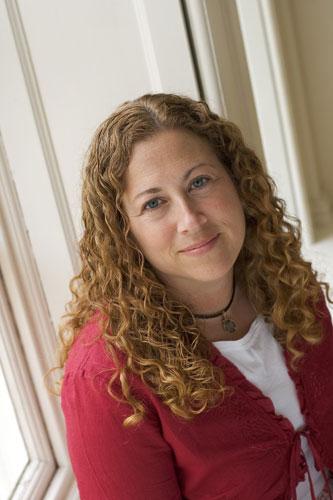How can a straight woman write about a lesbian couple’s fight for frozen embryos?
For the first few chapters of Jodi Picoult’s Sing You Home, I scribbled damning notes about the lesbian characters’ thoughts on homophobia, coming out and being in a same-sex relationship.
I may have scoffed initially, but after the first 200 pages, I found myself in the precarious position of agreeing with Picoult’s take on the reproductive obstacles faced by the lesbian couple and the hatred they encounter from the religious right.
Picoult has done her research. For a straight gal, she has quite a knack for pinpointing the weak spots in the US culture wars and landing the odd punch right where it hurts.
Picoult was recently in Canada and chatted with Xtra about Sing You Home. Here’s part of what she had to say:
Xtra: Why did you decide to write a novel on reproductive rights and the obstacles that same-sex couples face?
Jodi Picoult: I actually began this book thinking that I wanted to write something that specifically focused on gay rights in America because unfortunately, we are not as progressive in America as you in other countries, and it was important to me. I think that it is one of the last sets of human rights that haven’t been granted in our country. I was in the middle of writing the book, however, when my oldest son — who was 17 at the time — came out to my husband and me.
I am sure I knew he was gay when he was three, but it was more of a revelation to him. It was wonderful that Kyle felt comfortable enough to speak to us about it, and, of course, we didn’t mind at all. It was great that he was willing to come out in high school, which is still a very hard time for young kids.
All of a sudden this book that I was writing became a very personal mission for me as a mom because, by the time my own son wants to get married and have children, I would really like to know that he doesn’t need to jump through hoops in the US in order to do that.
Xtra: Was it difficult talking to rightwing Christian groups while doing your research?
JP: Oh, you have no idea. That was where I had a hard time with my objectivity — not in the writing of the book, but in trying to separate myself out as a researcher instead of the mother of a gay boy when I was going to do my interview. I just had to keep my cool and not editorialize when I heard things.
It goes beyond all of their circular logic and their reason why the Bible is an accurate sex manual, or why different studies that have proved gay is biological doesn’t hold water for them. For me the most telling moment came when I asked if perhaps their message was not quite getting across, and because of that the people were waving the Bible and using it as an excuse to commit hate crimes against gay people, and this woman I was interviewing burst into tears, and said, “Thank God that’s never happened.” I was speechless. And I asked her if she had never heard of Matthew Shepard, Tyler Clementi or any of the kids who killed themselves after being bullied for sexual orientation, and she really couldn’t answer me. I had to get off the phone and go and beat my head against the wall.
Xtra: Do you think you could write about homosexuality in the United States without writing about religion?
JP: No, I don’t because I really think that right now — because they are like a dime, a coin, they are flip side to each other — you can’t address the issue without looking at the counterattack. The problem that the Christian right brings up, in their words, is that if you are pro gay rights you are marginalizing the voice of Christians.
Xtra: Do you see it changing in the US?
JP: Twenty years ago it was much harder to be gay in the US than it is now. I think that President Obama has made some terrific inroads just this year, even just this month, between what he said about the Defense of Marriage Act, the repeal of Don’t Ask, Don’t Tell. So I would like to believe it is getting better.
Maybe that is the optimism in me as a mom, but the other thing that I realize is that when you talk to kids, many kids — not all kids — but many in high school are so much more accepting and tolerant than their parents and parents’ counterparts are. I think a lot of prejudice about sexual orientation is generational, and I would like to believe that as these kids grow up that sense of being non-discriminatory and accepting is going to spread as well.

 Why you can trust Xtra
Why you can trust Xtra


